Every human being has a dominant personality archetype, that shapes who they are as a person. But did you know that there are actually 12 different types of personality archetypes? This article is going to delve into detail about all the 12 personality archetypes.
What is an archetype?
The term “archetype” has a Greek origin and is a combination of the word archein, which means “original or old”; and typos, which means “pattern, model, or type”. Together it means the “original pattern” of which all other similar persons, objects, or concepts are derived.
The Swiss psychiatrist psychologist, Carl Gustav Jung, introduced the concept of archetype in his theory of the human psyche. He believed that archetypes (representing universal patterns and images) reside within the collective unconscious of people.
His concepts not only made a significant contribution to mainstream psychology but laid the foundation for both ancient and contemporary works.
Related: Which Jungian Archetype Are You? QUIZ
What is the origin of these personality archetypes?
According to Jung’s analysis, these personality archetypes exist in the collective unconscious (the source of psychological inheritance) and regulate how humans experience certain things.
Jung believes that the collective unconscious contains the experiences and knowledge that humans share. We tend to inherit these personality archetypes just like we inherit the genetic patterns of behavior.
In his book, The Archetypes And The Collective Unconscious, Carl Jung mentioned that Archetypes represent fundamental human motifs of our experience as we evolved; consequentially, they evoke deep emotions. It is due to these archetypes in the world, that there are so many powerful ideas in history, as per his book The Structure of the Psyche.
Jungian Personality Archetypes
Jung defined twelve personality archetypes that symbolize basic human motivations. As per Jung’s theory, archetypes are inborn tendencies that influence human behavior. Each type has its own set of values, meanings and personality traits.
A study published in Procedia-Social and Behavioral Sciences identified that a person can have several dominant archetypes in the early youth stage, but one dominant archetype is linked with several personality traits.
Also, the twelve types are divided into three sets of four, namely Ego (conscious mind), Soul, and Self. The types in each set share a common driving source, for example, types within the Ego set are driven to fulfill ego-defined agendas. Understanding each type can give valuable insights into what drives our goals, desires, behaviors, and motivation.
The Ego Types
1. The Innocent
- Motto: Free to be you and me
- Core desire: to get to paradise
- Goal: to be happy
- Greatest fear: to be punished for doing something wrong
- Strategy: to do what is right
- Weakness: boring for all their naive innocence and overly trusting person
- Talent: faith, positive outlook towards life, can uplift others
The Innocent is also known as: Utopian, mystic, romantic, saint, traditionalist, naive, dreamer, and happy-go-lucky.
Related: Spiritual Archetype Quiz: What Is Your Spiritual Archetype?
2. The Orphan/Regular Guy or Gal
- Motto: All men and women are created equal
- Core Desire: to connect with others
- Goal: belonging in the world
- Greatest fear: to be left out or to stand out from the crowd
- Strategy: develop ordinary solid virtues, be down to earth, the common touch, join groups and communities to find a place to fit in
- Weakness: being cynical or losing one’s own self in the quest to fit in or for the sake of superficial relationships
- Talent: realism, honesty, empathy, pragmatic, lack of pretense
- The Regular Person is also known as: The good old boy, the working stiff, the realist, the good neighbor, the solid citizen, or the silent majority.
3. The Hero
- Motto: Where there’s a will, there’s a way
- Core desire: to prove one’s worth through courageous acts
- Goal: expert mastery in a way that improves the world
- Greatest fear: weakness, vulnerability,
- Strategy: to be strong, competent, and stand up for others
- Weakness: arrogance, always needing another battle to fight
- Talent: competence and courage
The Hero is also known as: The warrior, superhero, crusader, rescuer, soldier, dragon slayer, winner, and team player.
4. The Caregiver
- Motto: Love your neighbor as yourself
- Core desire: to protect and care for others
- Goal: to help others
- Greatest fear: selfishness and ingratitude
- Strategy: doing things for others
- Weakness: not able to say no, martyrdom, and being exploited for good nature
- Talent: compassion, generosity
- The Caregiver is also known as: The saint, helper, empath, altruist, parent, compassionate, or supporter.
Related: Five Romantic Archetypes: Which One Are You?
The Soul Types
5. The Explorer
- Motto: Don’t fence me in
- Core desire: the freedom to find out who you are through exploring the world
- Goal: to experience a better, more fulfilling life in one lifetime
- Biggest fear: getting trapped, conformity, and inner emptiness
- Strategy: travel, experiencing new things, escape from boredom, learn new ideas and philosophies.
- Weakness: aimless wandering, becoming a misfit, inability to stick at things or relationships for too long
- Talent: autonomy, ambition, being true to one’s soul
- The explorer is also known as: The seeker, wanderer, iconoclast, pilgrim, individualist
6. The Rebel
- Motto: Rules are made to be broken
- Core desire: reform or revolution
- Goal: to overturn what isn’t working
- Greatest fear: to be powerless
- Strategy: disrupt, destroy, do things differently,
- Weakness: crossing over to the dark side, crime
- Talent: outrageousness, no hesitation to abandon good traditions to reform, radical freedom,
- The Rebel is also known as: The revolutionary, the misfit, wild man, iconoclast.
Related: 7 Inner Archetypes That Cripple Your Confidence and Self-Respect
7. The Lover
- Motto: You’re the only one
- Core desire: intimacy and experience
- Goal: to be around people and relationships they love
- Greatest fear: unloved, unwanted, being alone,
- Strategy: seek harmony in everything, to become more and more physically and emotionally attractive,
- Weakness: outward-directed desire to please others at risk of losing own identity, hard to deal with conflict
- Talent: passion, diplomacy, gratitude, appreciation, and commitment
- The Lover is also known as: The partner, enthusiast, friend, intimate, sensualist, spouse, team-builder.
8. The Creator
- Motto: Do what you imagine
- Core desire: to create things of enduring value
- Goal: to realize a vision
- Greatest fear: mediocre vision or execution or passive consumer of anything
- Strategy: develop artistic control and skill
- Task: to create culture, express own vision
- Weakness: perfectionism, bad solutions
- Talent: creativity and imagination
- The Creator is also known as: The artist, inventor, innovator, musician, writer or dreamer.
The Self Types
9. The Jester
- Motto: You only live once
- Core desire: to live in the present and enjoy to the fullest
- Goal: to have a great time and lighten up the world
- Greatest fear: being bored or boring others
- Strategy: be funny, play, make jokes
- Weakness: frivolity, wasting time, hide emotions and pain through humor
- Talent: joy, humor
- The Jester is also known as: The fool, trickster, deep soul, or comedian.
Related: What Is Your Psychological Archetype? Find Out With This QUIZ
10. The Sage
- Motto: The truth will set you free
- Core desire: to seek truth.
- Goal: Understand the world with intelligence
- Biggest fear: being misled—or ignorance.
- Strategy: seek information and knowledge; self-reflection and understanding thought processes, simplify complicated ideas.
- Weakness: can study details forever and never act.
- Talent: wisdom and intelligence.
- The Sage is also known as: The expert, philosopher, scholar, detective, advisor, academic, researcher, professional, mentor, thinker, listener, planner, teacher, and contemplative.
11. The Magician
- Motto: To make things happen.
- Core desire: understanding the fundamental laws of the universe
- Goal: to make dreams come true
- Greatest fear: unintended negative consequences
- Strategy: develop a vision and live by it
- Weakness: becoming manipulative
- Talent: new ways of looking at things, finding win-win solutions,
- The Magician is also known as: The visionary, charismatic leader, catalyst, shaman, healer, inventor, medicine man.
Related: What Is Your Spiritual Archetype? Find Out With This Quiz
12. The Ruler
- Motto: Power isn’t everything, it’s the only thing.
- Core desire: control
- Goal: create a prosperous, successful family or community
- Strategy: exercise power
- Greatest fear: chaos, being overthrown
- Weakness: being authoritarian, unable to delegate
- Talent: responsibility, leadership
- The Ruler is also known as: The boss, aristocrat, politician, role model, king, leader, queen, manager or administrator.
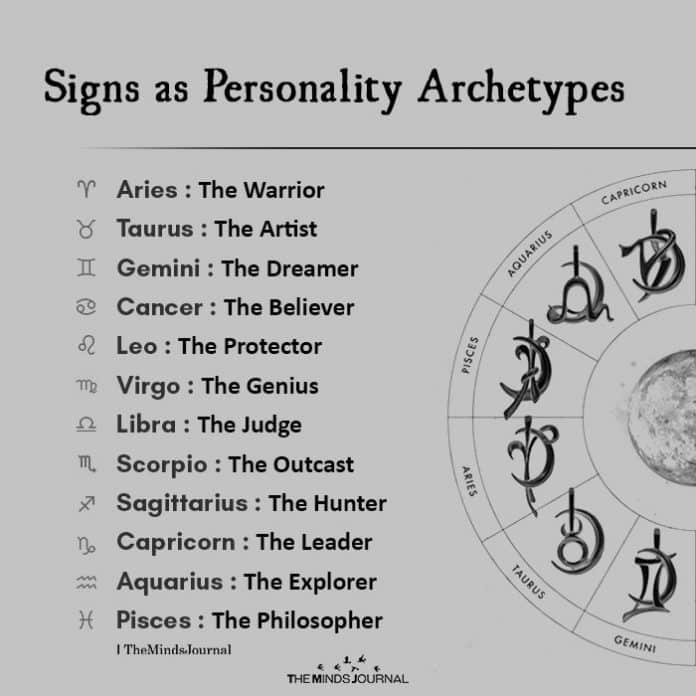
The Four Cardinal Orientations
As the wheel of personality archetypes shown above illustrates, The Four Cardinal Orientations represent four groups, with each group containing three types.
Each group is motivated by its respective orienting focus: ego-fulfillment, freedom, socialness, and order.
This is a variation on the three groups of personality archetypes previously mentioned.
However, whereas all the types within the Ego, Soul & Self sets all share the same driving source, the types comprising the four orienting groups have different source drives but the same motivating orientation.
For example, the Caregiver is driven by the need to fulfill ego agendas through meeting the needs of others, which is a social orientation; whereas, the Hero, which is also driven by the need to fulfill ego agendas, does so through courageous action that proves self-worth.
Understanding the groupings will aid in understanding the motivational and self-perceptual dynamics of each type.
Related: The 4 Stages Of Life According To Carl Jung
Wrap Up
These 12 personality archetypes guide us to understand our motivations, strengths, and weaknesses and prioritize and achieve our goals. Also, it helps in understanding the behavior of our close ones and others.
So, which archetype goes with your personality? Comment and let us know.
Want to know more about the Jungian personality archetypes? Check this video out below!
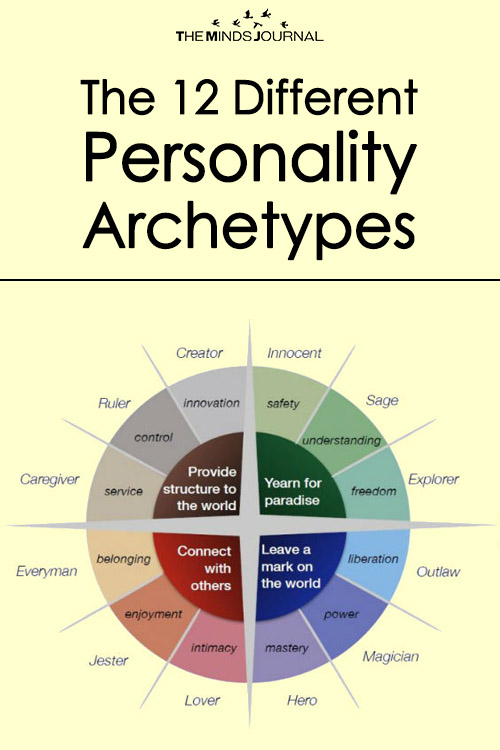
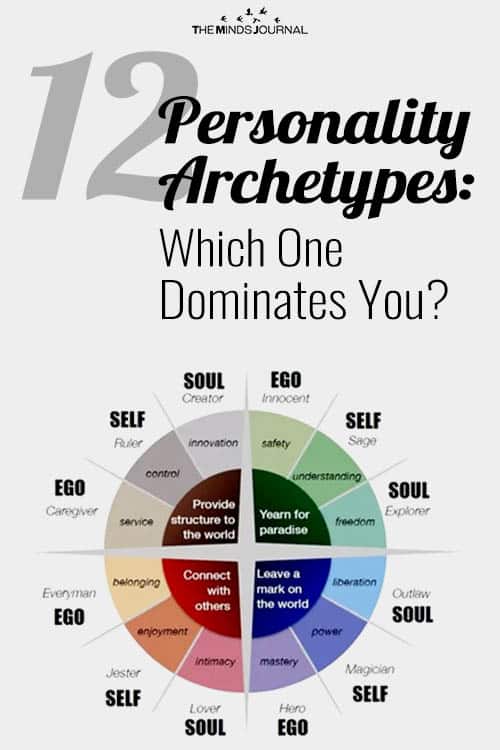



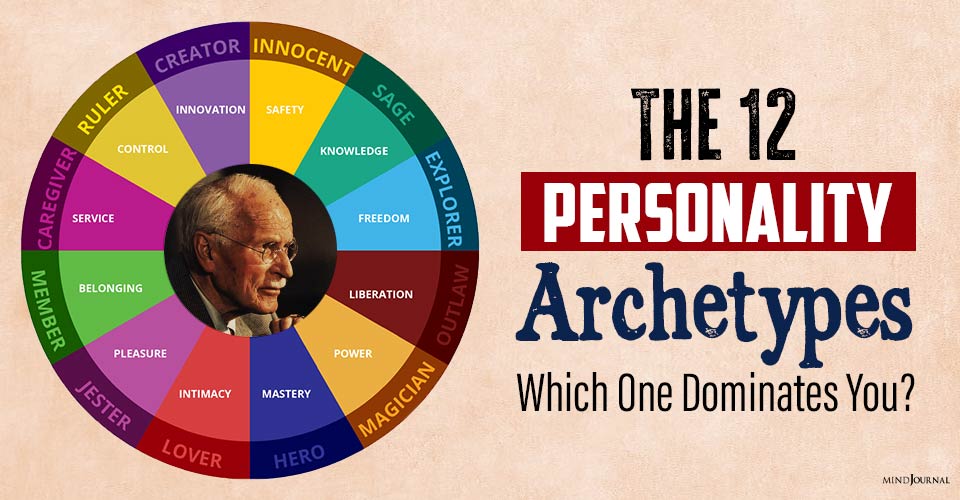

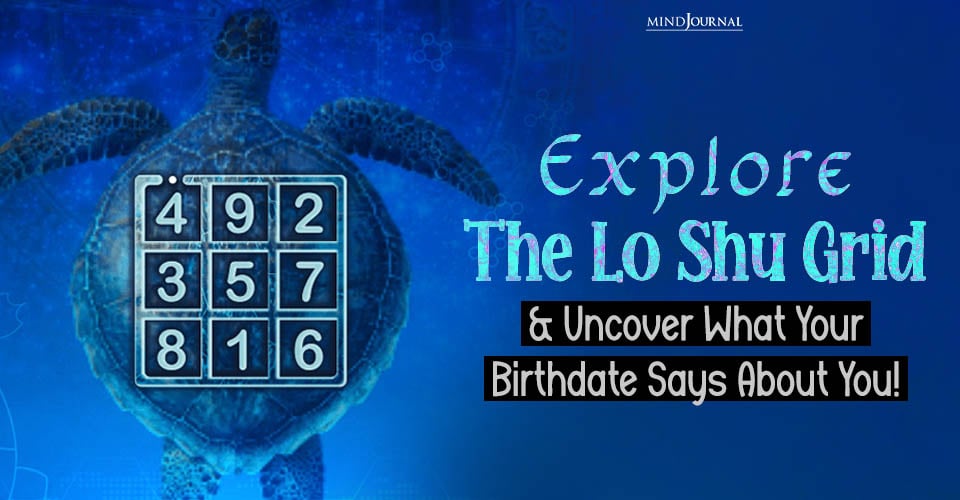
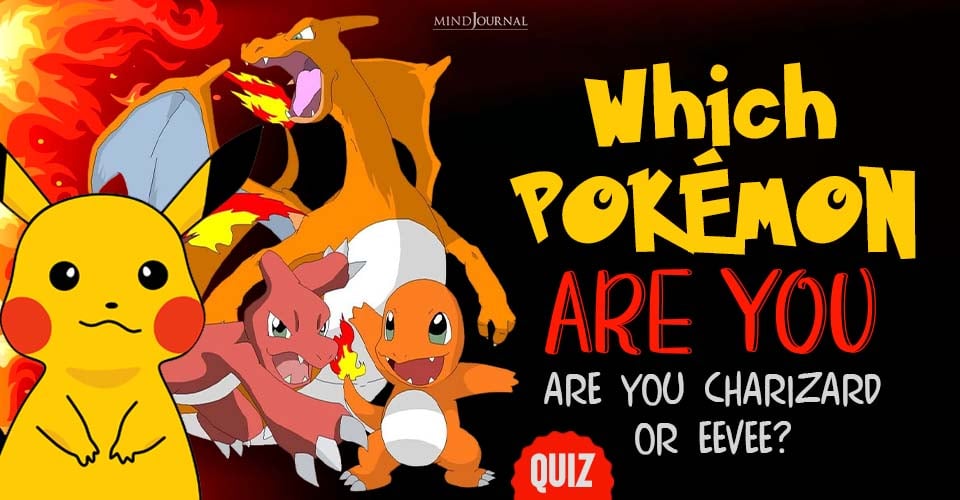
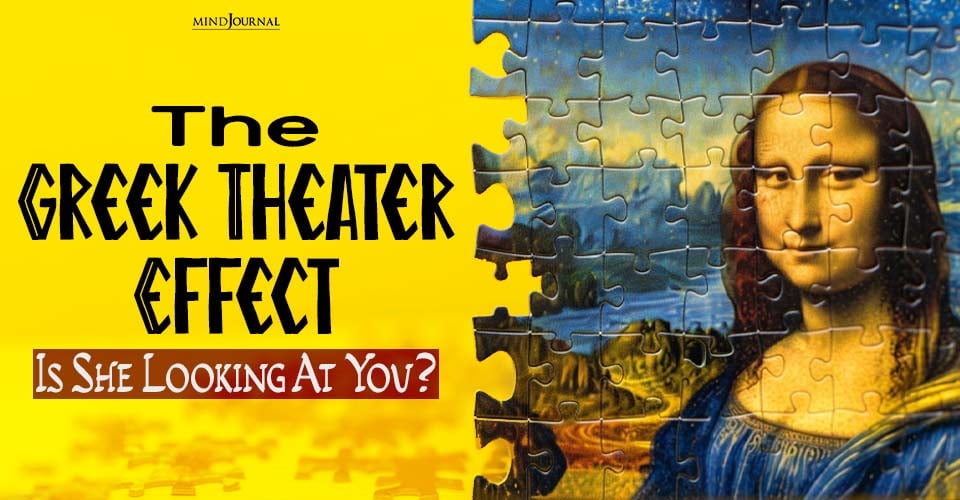
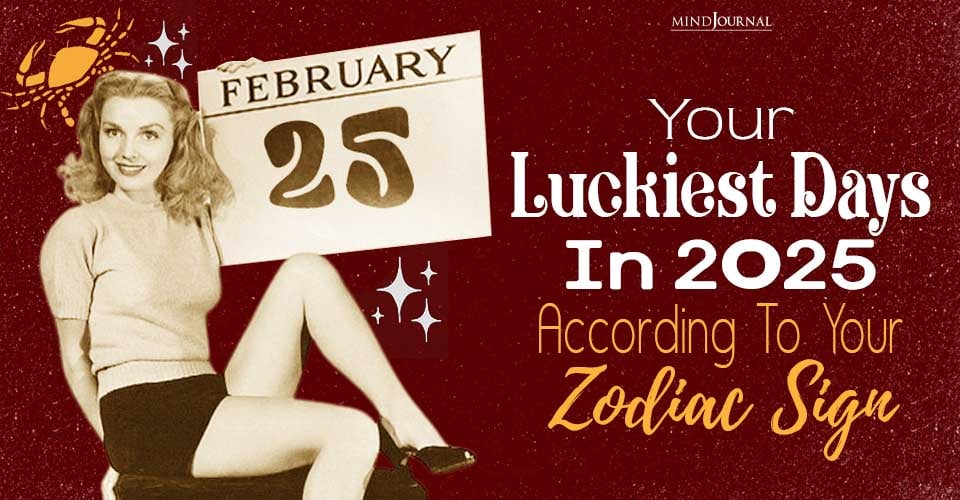
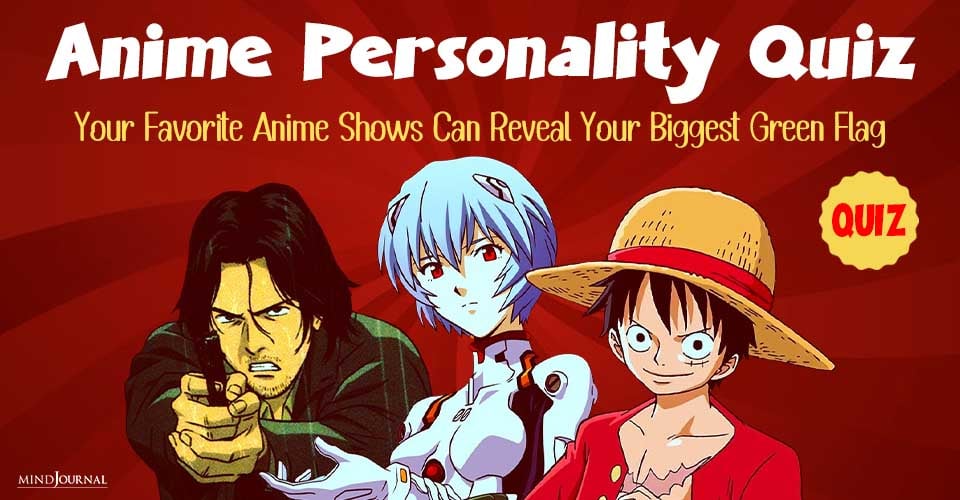
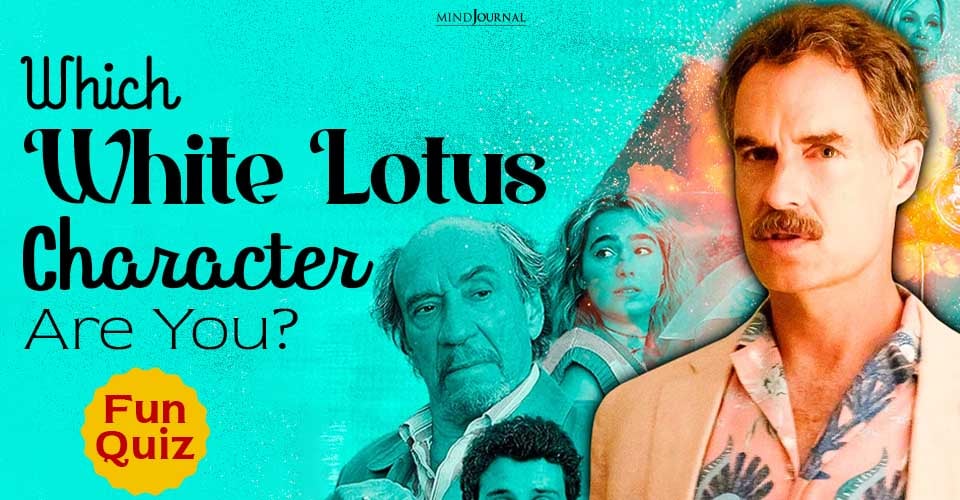
Leave a Reply